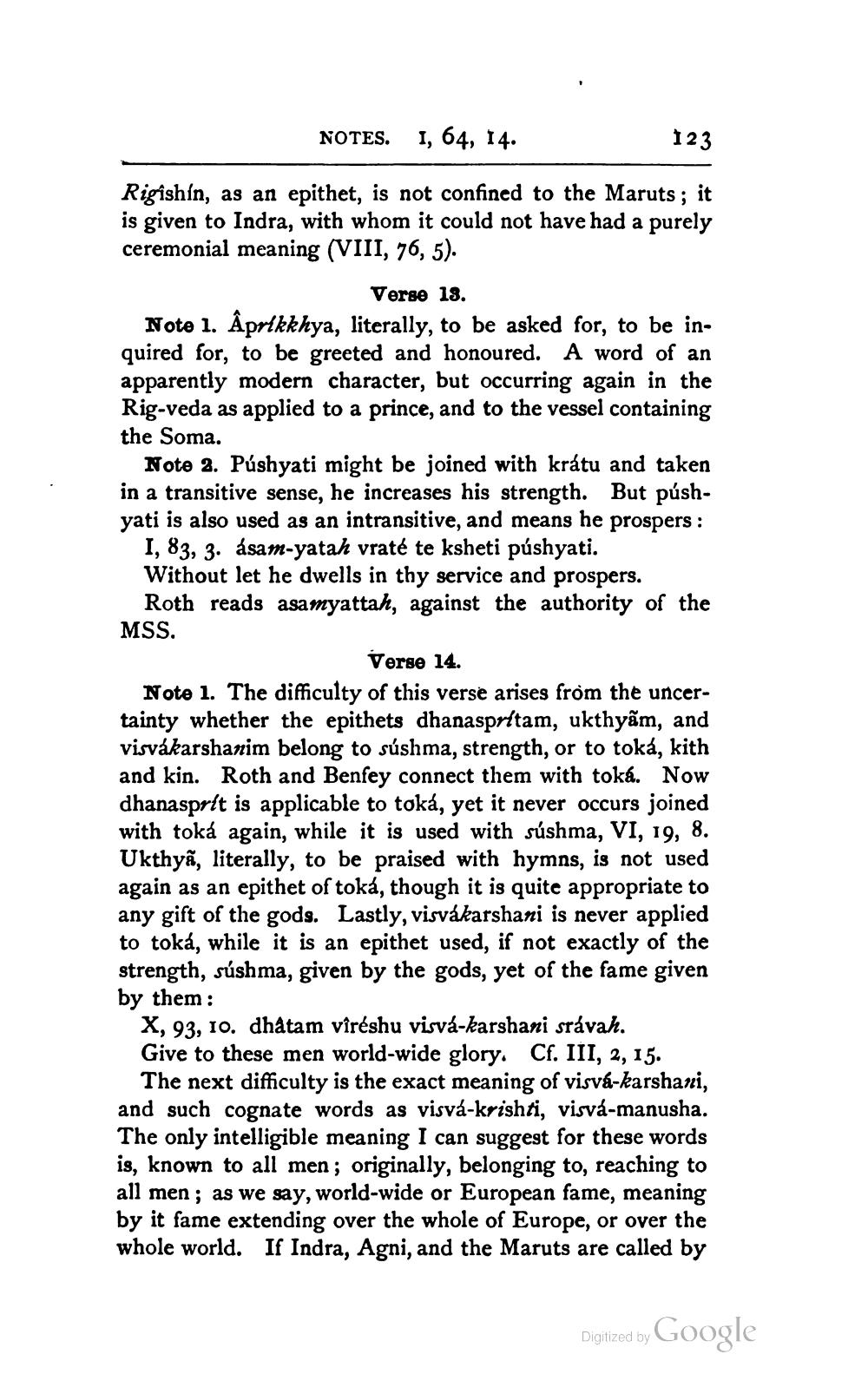________________
123
NOTES. I, 64, 14.
Rigishin, as an epithet, is not confined to the Maruts; it is given to Indra, with whom it could not have had a purely ceremonial meaning (VIII, 76, 5).
Verse 13.
Note 1. Âprikkhya, literally, to be asked for, to be inquired for, to be greeted and honoured. A word of an apparently modern character, but occurring again in the Rig-veda as applied to a prince, and to the vessel containing the Soma.
Note 2. Púshyati might be joined with krátu and taken in a transitive sense, he increases his strength. But pushyati is also used as an intransitive, and means he prospers: I, 83, 3. ásam-yatah vraté te ksheti púshyati. Without let he dwells in thy service and prospers.
Roth reads asamyattah, against the authority of the MSS.
Verse 14.
Note 1. The difficulty of this verse arises from the uncertainty whether the epithets dhanaspritam, ukthyẩm, and visvákarshanim belong to súshma, strength, or to toká, kith and kin. Roth and Benfey connect them with toká. Now dhanasprit is applicable to toká, yet it never occurs joined with toká again, while it is used with súshma, VI, 19, 8. Ukthya, literally, to be praised with hymns, is not used again as an epithet of toká, though it is quite appropriate to any gift of the gods. Lastly, visvákarshani is never applied to toká, while it is an epithet used, if not exactly of the strength, súshma, given by the gods, yet of the fame given by them:
X, 93, 10. dhâtam vîréshu visvá-karshani srávah. Give to these men world-wide glory. Cf. III, 2, 15.
The next difficulty is the exact meaning of visvá-karshani, and such cognate words as visvá-krishti, visvá-manusha. The only intelligible meaning I can suggest for these words is, known to all men; originally, belonging to, reaching to all men; as we say, world-wide or European fame, meaning by it fame extending over the whole of Europe, or over the whole world. If Indra, Agni, and the Maruts are called by
Digitized by Google




